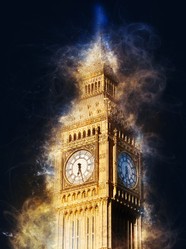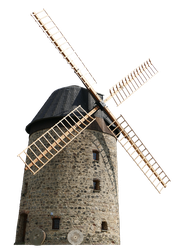The selection of a head of state reflects the values that society thinks is important. In ancient times a ruler, generally a king, had to be adept at making war. Monarchy was a warlike task, but kings also had to enforce justice in their realms. The trouble with having a warlord as head of state is that the ability to fight is not always associated with wisdom,virtue or political competence. Some kings, many or most maybe, were greedy for power and wealth and were often cruel to their own people. Roman emperors,though they claimed to promote peace, were hardly paragons of justice and stood at the apex of a system of power at the bottom of which were slaves and women.
Enlightened minds in ancient times saw the weaknesses of this system, and wise folk often tried to guide the king to rule justly. Plato, the Greek philosopher, attempted to design a society in which a set of philosophers ruled by a philosopher king dominated society. Plato's philosopher king model was never really tried, but its descendant is the one party state governed by a tight clique who share a common pilosophy. States like this are horrid places in which dissent is persecuted.
The alternative solution is biblical. The monarch of Israel rulled under God, and was subject to God's law, as King David discovered when he had Uriah the Hittite killed to get his wife.He was taken to task by the prophet Nathan.The biblical ideal is expressed in the Christian ideal, that Christ is the true king of kings and that therefore political and religious leaders operate under God. This idea works well in a Christian society and was, I believe, the guiding principle that governed Elizabeth the Second's life, and it is still at the basis of the British politicalsystem, but it is hard to implement this in a modern secular society.
Other systems have their weaknesses. I once heard two engineers discussing why society should be ruled by engineers, oblivious to the fact that a narrow talent base among politicians would be a limitation on the competence of government. A French philosopher, Comte, stated that society should be ruled by a committee of sociologists. No comment on that dream, sorry, nightmare! Theocracies, government by religious authorities, do not fare well, though the papal states were an example of generosity to the poor. But Iran is hardly a happy place, and Afghanistan has people trying to escape.
In truth, all systems are run by flawed human beings. Britain had a devoted, hard working monarch whose life was governed by a good value system and the new king will try his best. But hereditary monarchy is a lottery, and there can be unworthy successors. But elected presidents cannot be relied on to be virtuous, and they have had to rise up the greasy pole of politics with moral compromises in their past. The British public fell for the blandishments of Boris Johnson, who sold them the deception of Brexit, a disaster for Britain, but a way to the prime minister's role for himself. Electorates make mistakes. So who should be head of state?






 TheThousand Year Gardenon 11/26/2025
TheThousand Year Gardenon 11/26/2025
 Women of the Gospelson 10/11/2025
Women of the Gospelson 10/11/2025
 Religious Gardenson 08/25/2025
Religious Gardenson 08/25/2025
 Doctor of the Church: John Henry Newmanon 08/03/2025
Doctor of the Church: John Henry Newmanon 08/03/2025




Comments
Probably. It was the norm at the time.
Thank you!
Online sources attribute to William III (Nov 14, 1650-March 8, 1702) an approximate 30-day mourning period for his wife, Mary II (April 30, 1662-Dec. 28, 1694).
Did he wear black those 30-some days?
She wore predominantly black.
Thank you!
Online sources describe Queen Victoria as donning black every day for 40 years after the death of Prince Albert. Did she don black from head to foot or did she just don something, however major, however minor, black all that time?
Please excuse me if this figures somewhat morbidly.
Might Queen Victoria have been buried in black dress, footwear, gloves and veil?
There is no set period of mourning, but three days would be considered reasonable.
Unitedstatesian tennis player Arthur Ashe appreciated the English people. The English love for flowers, manners, rituals and traditions particularly enchanted him.
So is there an English tradition for the mourning-period length for a royal member?
Derdriu
This is news to us. I never heard of gifts being returned by our greedy monarchy .
Sorry, I have never heard this story.
This morning I accessed an interesting article about Queen Elizabeth II while I awaited having a tire air-pressure problem being fixed by the world's best mechanical engineer and car specialist. The waiting room has an antique car, car books and toy cars. It has among its books a quarterly series about car facts and car history.
One article indicates that Queen Elizabeth II was presented with a Nash Metropolitan in 1962. Nobody knows why she had it returned, why it was rejected as an appreciative gift to the British monarchy. The Nash Metropolitan was returned with 25 miles (40.23 kilometers) on its mileage gauge and ... without keys!
Would you happen to have heard anything over there on your west side of the Atlantic pond?
I think countries who want to retain the monarchs are those who want glamour associated with the Royals and tourists. France broke away with the Royalty when it came to their knowledge the extravagant lives they led. In democracy, all people are considered equal at least in principle. However, I must say that Queen Elizabeth was a diplomatic person who knew her bounds and her actions did not raise eyebrows. Prince Charles's affair with Camilla and denial of Diana evokes in me the beautiful memories of Princess Diana. She was the princess of people, admired by them and so do I. It is up to the residents what they want to do with Royalty. Coming days will decide the future of Royals.